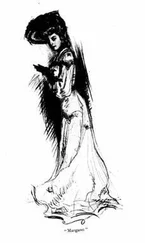James Cabell - The Cords of Vanity. A Comedy of Shirking
Здесь есть возможность читать онлайн «James Cabell - The Cords of Vanity. A Comedy of Shirking» весь текст электронной книги совершенно бесплатно (целиком полную версию без сокращений). В некоторых случаях можно слушать аудио, скачать через торрент в формате fb2 и присутствует краткое содержание. Жанр: Современная проза, на английском языке. Описание произведения, (предисловие) а так же отзывы посетителей доступны на портале библиотеки ЛибКат.
- Название:The Cords of Vanity. A Comedy of Shirking
- Автор:
- Жанр:
- Год:неизвестен
- ISBN:нет данных
- Рейтинг книги:3 / 5. Голосов: 1
-
Избранное:Добавить в избранное
- Отзывы:
-
Ваша оценка:
- 60
- 1
- 2
- 3
- 4
- 5
The Cords of Vanity. A Comedy of Shirking: краткое содержание, описание и аннотация
Предлагаем к чтению аннотацию, описание, краткое содержание или предисловие (зависит от того, что написал сам автор книги «The Cords of Vanity. A Comedy of Shirking»). Если вы не нашли необходимую информацию о книге — напишите в комментариях, мы постараемся отыскать её.
The Cords of Vanity. A Comedy of Shirking — читать онлайн бесплатно полную книгу (весь текст) целиком
Ниже представлен текст книги, разбитый по страницам. Система сохранения места последней прочитанной страницы, позволяет с удобством читать онлайн бесплатно книгу «The Cords of Vanity. A Comedy of Shirking», без необходимости каждый раз заново искать на чём Вы остановились. Поставьте закладку, и сможете в любой момент перейти на страницу, на которой закончили чтение.
Интервал:
Закладка:
"Abides the symbol of all loveliness,
Of beauty ever stainless in the stress
Of warring lusts and fears.
"For she is to each man the one woman that he might have loved perfectly. She is as old as youth, she is more old than April even, and she is as ageless. And, again like youth and April, this Helen goes about the world in varied garments, and to no two men is her face the same. Oh, very often she transmutes her fleshly covering. But through countless ages I, like every man alive, have followed her, and fought for her, and won her, and have lost her in the end,—but always loving her as every man must do. And I prefer to think that some day—" But my voice here died into a whisper, which was in part due to emotion and partly to an inability to finish the sentence satisfactorily. The logic of my verses when thus paraphrased from memory, seemed rather vague.
"Yes—like Pythagoras" she said, a bit at random. "Oh, I know. There really must be something in it, I have often thought, because you actually do remember having done things before sometimes."
"And why not? as the March Hare very sensibly demanded." But now my voice was earnest. "Yes, I believe that Helen always comes. Is it simply a proof that I, too, am qualified to sit next to the Hatter?" I spread out my hands in a helpless little gesture. "I do not know. But I believe that she will come,—and by and by pass on, of course, as Helen always does."
"You will know her?" she queried, softly.
Now I at last had reached firm ground. "She will be very tall," I said, "very tall and exquisite,—like a young birch-tree, you know, when its new leaves are whispering over to one another the secrets of spring. Yes, that is a ridiculous sounding simile, but it expresses the general effect of her—the coup d'oeil , so to speak,—quite perfectly. Moreover, her hair will be a miser's dream of gold; and it will hang heavily about a face that will be—quite indescribable, just as the dawn yonder is past the utmost preciosity of speech. But her face will flush and will be like the first of all anemones to peep through black, good-smelling, and as yet unattainable earth; and her eyes will be deep, shaded wells where, just as in the proverb, truth lurks."
But now I could not see her eyes.
"No," I conceded, "I was wrong. For when men talk to her as—as they cannot but talk to her, her face will flush dull red, almost like smouldering wood; and she will smile a little, and look out over a great fire, such as that she saw on the night when Ilium was sacked and the slain bodies were soft under her stumbling feet, as she fled through flaming Troy Town. And then I shall know her."
My companion sighed; and the woes of centuries weighed down her eyelids obstinately. "It is bad enough," she lamented, "to have lost all one's clothes—that new organdie was a dream, and I had never worn it; but to find yourself in a dressing-gown—at daybreak, on a strange roof—and with an unintroduced lunatic—is positively terrible!"
The unintroduced lunatic rose to his feet and waved his hand toward the east. The dawn was breaking in angry scarlet and gold that spread like fire over half the visible horizon; the burning hotel shut out the remaining half with tall flames, which shouldered one another monotonously, and seemed lustreless against the pure radiance of the sky. Chill daylight showed in melting patches through the clouds of black smoke overhead.
It was a world of fire, transfigured by the austere magnificence of dawn and the grim splendour of the shifting, roaring conflagration; and at our feet lay the orchard of the Councillor von Hollwig, and there the awakened birds piped querulously, and sparks fell crackling among apple-blossoms.
"Ilium is ablaze," I quoted; "and the homes of Pergamos and its towering walls are now one sheet of flame."
She inspected the scene, critically. "It does look like Ilium," she admitted. "And that," peering over the eaves into the deserted by-street, "looks like a milkman."
I was unable to deny this, though an angry concept crossed my mind that any milkman, with commendable tastes and feelings, would at this moment be gaping at the fire at the other end of the block, rather than prosaically measuring quarts at the Councillor's side-entrance. But there was no help for it, when chance thus unblushingly favoured the proprieties; in consequence I clung to a water-pipe, and explained the situation to the milkman, with a fretted mind and King's College French.
I turned to my companion. She was regarding the burning hotel with an impersonal expression.
"Now I would give a deal," I thought, "to know just how long you would prefer that milkman to take in coming back."
12. He Faces Himself and Remembers
1
Into the lobby of the Hôtel d'Angleterre strolled, an hour later, a tall young man, in a green dressing-gown, and inquired for Charteris. The latter, in evening dress, was mournfully breakfasting in his new quarters.
Charteris sprang to his feet. I saw, with real emotion, that he had been weeping; but now he was all flippancy. "My dear boy! I have just torn my hair and the rough drafts of several cablegrams on your account! Sit down at once, and try the bacon, since, for a wonder, it is not burnt—and, in passing, I had thought of course that you were."
Instead, I took a drink, and went to sleep upon the nearest sofa.
2
I was very tired, but I awakened about noon and managed to procure enough clothes to make myself not altogether unpresentable to the public eye. Charteris had gone already about his own affairs, and I did not regret it, for I meant, without delay, to follow up my adventure of the night before.
But when I had come out of the Rue de la Casquette, and was approaching the statue of Gretry, I came upon a very ornately-dressed woman, who was about to enter en open carriage. I stared; and preposterous as it was, I knew that I was not mistaken. And I said aloud, "Signorina!"
It was a long while before she said, "Don't—don't ever call me that again!" And since the world in general appeared just then to be largely flavoured with the irresponsibility of dreams, it did not surprise me that we were presently alone in somebody's sitting-room.
"I have seen you twice in Liége," she said. "I suppose this had to come about. I would have preferred to avoid it, though. Well! che sara! You don't care for music, do you? No,—otherwise you would have known earlier that I am Nadine Neroni now."
"Ah!" I said, very quietly. I had heard, as everybody had, a deal concerning the Neroni. "I think, if you will pardon me, I will not intrude upon Baron von Anspach's hospitality any longer," I said.
"That is unworthy of you,—no, I mean it would have been unworthy of a boy we knew of." There was a long pier-glass in these luxurious rooms. She led me to it now. "Look, Bobbie. We have altered a little, haven't we? I at least, am unmistakable. 'Their eyes are different, somehow', you remember. You haven't changed as much,—not outwardly. I think you are like Dorian Gray. Yes, as soon—as soon as I could afford it, I read every book you ever talked about, I think. It was damnably foolish of me. For I've heard things. And there was a girl I tried to help in London—an Agnès Faroy—"
"Ah!" I said.
"She had your picture even then, poor creature. She kissed it just before she died. She didn't know that I had ever heard of you. She never knew. Oh, how could you!" the Neroni said, with something very like a sob, "Or were you always—just that, at bottom?"
"And have you ever noticed, Mademoiselle Neroni, that every one of us is several people? In consequence I must confess to have been wondering—?"
Читать дальшеИнтервал:
Закладка:
Похожие книги на «The Cords of Vanity. A Comedy of Shirking»
Представляем Вашему вниманию похожие книги на «The Cords of Vanity. A Comedy of Shirking» списком для выбора. Мы отобрали схожую по названию и смыслу литературу в надежде предоставить читателям больше вариантов отыскать новые, интересные, ещё непрочитанные произведения.
Обсуждение, отзывы о книге «The Cords of Vanity. A Comedy of Shirking» и просто собственные мнения читателей. Оставьте ваши комментарии, напишите, что Вы думаете о произведении, его смысле или главных героях. Укажите что конкретно понравилось, а что нет, и почему Вы так считаете.



